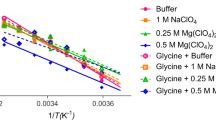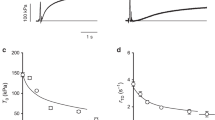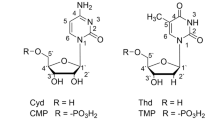Abstract
IN the course of metabolic experiments carried out on homogenates prepared from fresh human adenomatous prostates, we have observed that incubation of such homogenates at 37° C. and pH 7 in tris buffer containing calcium chloride (0.02 M) resulted in a rapid loss of phosphatase activity averaging 44 per cent after 3 hr. in 32 experiments. When adenosine triphosphate (0.015 M) was added at the beginning of the incubation period, the loss of activity was reduced to an average value of 5 per cent under the same experimental conditions. Addition of adenosine triphosphate during or at the end of the incubation period resulted in complete regeneration of the acid phosphatase activity on further incubation (Fig. 1). We have observed also that adenosine triphosphate could be replaced by sodium diphosphate or ethylenediamine tetraacetic acid (versene) with identical results.
This is a preview of subscription content, access via your institution
Access options
Subscribe to this journal
Receive 51 print issues and online access
$199.00 per year
only $3.90 per issue
Buy this article
- Purchase on Springer Link
- Instant access to full article PDF
Prices may be subject to local taxes which are calculated during checkout
Similar content being viewed by others
Author information
Authors and Affiliations
Rights and permissions
About this article
Cite this article
TAGNON, H., STEENS-LIEVENS, A. Inactivation of Acid Phosphatase in Human Prostatic Homogenates in vitro : Role of Calcium. Nature 185, 48–49 (1960). https://doi.org/10.1038/185048a0
Issue Date:
DOI: https://doi.org/10.1038/185048a0
This article is cited by
Comments
By submitting a comment you agree to abide by our Terms and Community Guidelines. If you find something abusive or that does not comply with our terms or guidelines please flag it as inappropriate.



